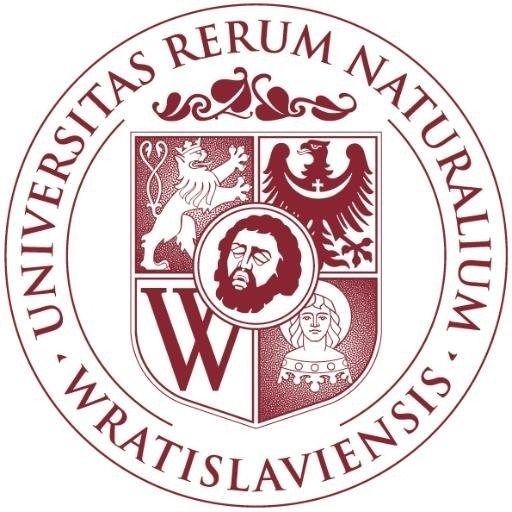Horticulture at Warsaw University of Life Sciences offers a comprehensive and in-depth education for students passionate about plant cultivation, landscape design, and environmental sustainability. The program is designed to provide both theoretical knowledge and practical skills necessary for professional development in various fields related to plant sciences, landscape architecture, and agribusiness. Students will explore subjects such as botany, plant physiology, soil science, plant propagation, pest management, and sustainable horticultural practices. The curriculum emphasizes modern techniques in horticultural production, quality control, and innovative landscape solutions, preparing graduates to meet the challenges of contemporary plant cultivation and environmental management.
Throughout the program, students gain hands-on experience through laboratory work, internships, and field trips to horticultural farms, botanical gardens, and landscape architecture sites. This practical training enables them to develop skills in plant cultivation, landscaping, and maintenance, as well as environmental conservation strategies. The program also emphasizes the importance of sustainable practices and integrated pest management, promoting environmentally friendly solutions within horticultural industries.
Graduates of the Horticulture program are well-equipped to pursue careers in areas such as commercial horticulture, landscape design and management, environmental consultancy, plant nursery management, and research and development. The university’s strong links with industry partners and research institutions provide opportunities for students to participate in innovative projects and professional collaborations. Upon completion of the program, graduates receive a bachelor’s degree, which serves as a foundation for further specialization or postgraduate studies.
The program is tailored to meet the needs of modern horticulture, addressing current issues such as climate change, biodiversity, and sustainable development. It combines academic excellence with practical application to prepare students for the dynamic job market and encourage entrepreneurial initiatives in the horticultural sector. Whether interested in plant science, ecological restoration, or landscape design, students will find a rich learning environment that fosters creativity, technical competence, and environmental consciousness.
The Horticulture program at Warsaw University of Life Sciences (WULS-SGGW) offers a comprehensive education designed to equip students with the knowledge and skills necessary to succeed in the dynamic and diverse field of horticulture. This program covers the fundamental principles of plant science, soil management, pest and disease control, and sustainable cultivation techniques. Students will explore a wide range of topics including landscape architecture, garden design, nursery management, and the production of fruits, vegetables, and ornamental plants. The curriculum emphasizes both theoretical understanding and practical skills, with numerous laboratory sessions, fieldwork, and internships that enable students to apply their learning in real-world settings. Throughout their studies, students will gain insights into modern horticultural technologies, environmental protection, and the principles of sustainable development, preparing them to address current challenges in food production, urban landscaping, and ecological conservation. The program aims to develop creative problem-solvers who can innovate in areas such as organic farming, eco-friendly pest control, and urban greening projects. Graduates of this program will be prepared for careers in horticultural science, landscape design, production management, research, and consultancy. They will also be equipped with the entrepreneurial skills necessary to start their own businesses or work in managerial roles within the horticultural industry. The program is delivered by experienced faculty members who are experts in their fields, complemented by collaborations with industry partners and research institutions. Upon completion, students will possess a strong foundation in horticultural practices, supported by up-to-date knowledge of environmental sustainability and technological advancements, making them competitive candidates in the global market.
Bachelor degree in Horticulture, Agriculture, Biology or Environmental Sciences. Verified command of English. Students graduated from Polish universities are also welcome (without paying fee).
Qualification based on results from the first degree studies (grades average) and motivation letter. Verified command of English. Number of places available: 15 to 17.
The financing of the Horticulture program at the Warsaw University of Life Sciences is primarily designed to support both domestic and international students through various funding mechanisms. Most students enroll in the program via the regular fee-based system, which covers tuition costs and access to academic resources, laboratories, and practical training facilities. The university offers a range of scholarships and financial aid packages based on academic achievement, financial need, and extracurricular involvement, aimed at reducing the economic burden on students. Additionally, students may benefit from government grants, regional funding, and international mobility programs such as Erasmus+, which provide financial support for study exchanges and internships abroad, enhancing the educational experience in horticultural sciences. The university often collaborates with industry partners and agricultural enterprises to develop sponsorship programs that can include stipends, research funding, or project-based scholarships for students involved in applied research or practical projects. Furthermore, students can seek part-time employment on campus or within local horticultural businesses, which not only provides financial support but also valuable practical experience aligned with their field of study. The university also informs prospective students about external funding options, including European Union programs and private foundations, that support studies in agriculture and horticulture, fostering an inclusive and supportive financial environment. Overall, the financing structure of the Horticulture program at Warsaw University of Life Sciences aims to facilitate accessible, high-quality education and promote scientific research and innovation in horticultural sciences through diverse funding avenues.
The Horticulture programme at Warsaw University of Life Sciences (WULS-SGGW) is designed to provide students with comprehensive knowledge and practical skills in the field of horticulture, including the cultivation of ornamental plants, fruit and vegetable crops, and landscape architecture. The curriculum covers fundamental sciences such as plant biology, soil science, plant protection, and ecology, combined with specialized modules in horticultural techniques, crop production, and sustainable practices. Students gain hands-on experience through laboratory work, field practica, and internships at leading horticultural enterprises, botanical gardens, and research institutions. The programme emphasizes modern technological approaches, including integrated pest management, plant breeding, and horticultural engineering, ensuring graduates are well-equipped to address contemporary challenges in horticulture. Graduates of this programme can pursue careers in commercial horticulture, landscape design, urban greenery management, research, and teaching. The teaching staff comprises experienced professors and industry experts committed to fostering innovation and sustainable development within the horticultural sector. The programme is accredited by relevant educational authorities and aims to prepare students for both professional work and postgraduate studies. Students also have access to modern facilities such as greenhouses, specialized laboratories, and a plant nursery to support their learning. The programme’s interdisciplinary approach underscores the importance of environmentally friendly practices, biodiversity conservation, and the economic significance of horticulture, aligning with global trends toward sustainability. Overall, the Horticulture programme at WULS-SGGW provides a solid foundation for students passionate about plant cultivation, landscape management, and ecological sustainability, ensuring they are prepared for the dynamic and evolving horticultural industry.










